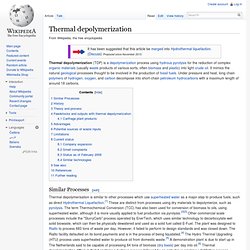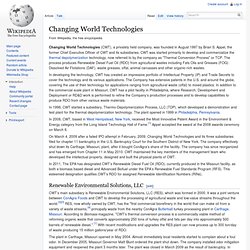

Dynamic Maps, GIS Data, and Analysis Tools - Biomass Maps. These maps illustrate the biomass resources available in the United States by county.

Biomass feedstock data are analyzed both statistically and graphically using a geographic information system (GIS). The following feedstock categories are evaluated: crop residues, forest residues, primary and secondary mill residues, urban wood waste, and methane emissions from manure management, landfills, and domestic wastewater treatment. Biomass Resources in the United States Total Resources by County Total Biomass per Square Kilometer These maps estimate the biomass resources currently available in the United States by county. .
Crop residues The following crops were included in this analysis: corn, wheat, soybeans, cotton, sorghum, barley, oats, rice, rye, canola, dry edible beans, dry edible peas, peanuts, potatoes, safflower, sunflower, sugarcane, and flaxseed. Forest residues Primary mill residues Secondary mill residues Urban wood waste Methane emissions from landfills References. Map_biomass_km2.jpg (JPEG Image, 3300 × 2550 pixels) - Scaled (30%) 7 of the Largest Landfills in the World. What's needed to get sustainable energy for all (World Bank infographic) Free Energy!! The $400 Billion Dollar Secret. Thermal depolymerization. Thermal depolymerization (TDP) is a depolymerization process using hydrous pyrolysis for the reduction of complex organic materials (usually waste products of various sorts, often biomass and plastic) into light crude oil.

It mimics the natural geological processes thought to be involved in the production of fossil fuels. Under pressure and heat, long chain polymers of hydrogen, oxygen, and carbon decompose into short-chain petroleum hydrocarbons with a maximum length of around 18 carbons. Similar Processes[edit] Thermal depolymerisation is similar to other processes which use superheated water as a major step to produce fuels, such as direct Hydrothermal Liquefaction.[1] These are distinct from processes using dry materials to depolymerize, such as pyrolysis. History[edit] Thermal depolymerization is similar to the geological processes that produced the fossil fuels used today, except that the technological process occurs in a timeframe measured in hours.
Changing World Technologies. Changing World Technologies (CWT), a privately held company, was founded in August 1997 by Brian S.

Appel, the former Chief Executive Officer of CWT and its subsidiaries. CWT was started primarily to develop and commercialize the thermal depolymerization technology, now referred to by the company as "Thermal Conversion Process" or TCP. The process produces Renewable Diesel Fuel Oil (RDO) from agricultural wastes including Fats Oils and Greases (FOG) Dissolved Air Flotations (DAF), waste greases, offal, animal carcasses and other organic-rich wastes. In developing the technology, CWT has created an impressive portfolio of Intellectual Property (IP) and Trade Secrets to cover the technology and its various applications. The Company has extensive patents in the U.S. and around the globe, covering the use of their technology for applications ranging from agricultural waste (offal) to mixed plastics.
Renewable Environmental Solutions, LLC[edit] In December of 2012 noted engineer Dennis M. Paul Baskis. Paul Baskis is an Illinois biochemist, who, in the 1980s found a way of synthetically producing oil from industrial and household wastes without expending more energy than is produced.

This process was patented, U.S. patent 5,269,947,[1] in 1993. The rights to the patent were acquired by Changing World Technologies. See also[edit] References[edit] Thermal Depolymerization notes. Letter I wrote Brian Appel Chairman and CEO Changing World Technologies CWT. Thermal Depolymerization. Diesel de plastique. Changing World Technologies, Inc. The Future of Trash-Based Bio-Fuels [Infographic] EmailShare 9EmailShare If it takes one ton of garbage to generate 70 gallons of ethanol, is it really worthwhile?
![The Future of Trash-Based Bio-Fuels [Infographic]](http://cdn.pearltrees.com/s/pic/th/future-infographic-urbnfutr-73178289)
By decreasing the need to chop down trees, triggering new employment sectors and overhauling the way in which we power our vehicles… It seems trash-based bio-fuels will assume a strong ranking in the future of energy on Planet Earth. Below is a simple, yet thought-provoking infographic from WellHome: Map_biomass_total_us_new.jpg (JPEG Image, 3300 × 2550 pixels) - Scaled (30%)